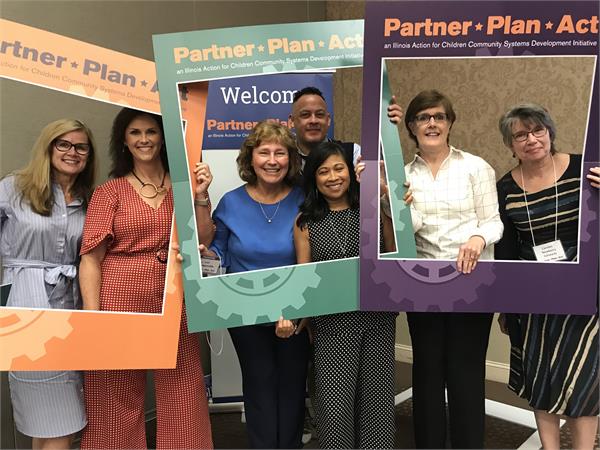Our Approach
Centering Racial Equity
We all have a role to play in advancing racial equity and deconstructing inequitable early childhood systems through community systems development.
Together, we must reimagine and redesign systems that don’t work to ensure children and families, especially those most impacted by racial inequities, have the support and services they want and need.

How We Define Equity
Racial equity in early childhood collaborations is both a process and an outcome.
- As a process – Racial equity reforms the practices and policies of structural and systemic racism by 1) prioritizing services for those most impacted by racism; 2) assessing and addressing the advantages and disparities produced by unjust systems and practices; and 3) engaging those most impacted as experts in their own experiences, strategists in co-creating solutions, and evaluators of success.
- As an outcome – We achieve racial equity when race no longer determines how one fares in society; when everyone has what they need to thrive, no matter where they live.
When We Achieve Racial Equity:
- People, including people of color, have what they need to be owners, planners, and decision-makers in the systems that govern their lives.
- Resources, opportunities, rewards, and burdens are fairly distributed across groups and communities so that those with the greatest challenges receive adequate support and are not further disadvantaged.
- We acknowledge and account for past and current inequities. All people, particularly those most impacted by racial inequities, have the infrastructure they need to thrive and participate.
- Systems and policies that affect children and families are consciously designed, reframed, or eliminated in a robust and dynamic process to promote greater justice.
- Everyone benefits from a more just, equitable system.
Understanding Our History
We must understand how history, policies, practices, and mindsets contribute to the present day as we journey towards creating an equitable society where race no longer determines how one fares. Institutional and systemic racism have contributed to the existing early childhood systems that young children and families navigate.
Together, we must reimagine and redesign systems that don’t work to ensure children and families, especially those most impacted by racial inequities, have the support and services they want and need.

Equity is a Continuous Journey
We recognize that the path to racial equity in community systems has challenges. This includes deep-seated biases and structural barriers. However, we view these challenges as opportunities to innovate, learn, and grow. What drives our work is the belief that through dedicated effort and collaboration, we can make significant progress towards equitable outcomes for all children.
Racial Equity Resources
We’ve collected some resources to help build understanding of racial inequities in community systems. This is not an exhaustive list, rather, a stop on your journey.
While the connection between early childhood and sectors listed in our resources may not be explicit, these sectors influence the lives and day-to-day experiences of young children and families. Therefore, these sectors have a direct impact on early childhood work.
We invite you to explore our reflection questions when viewing any of the resources.